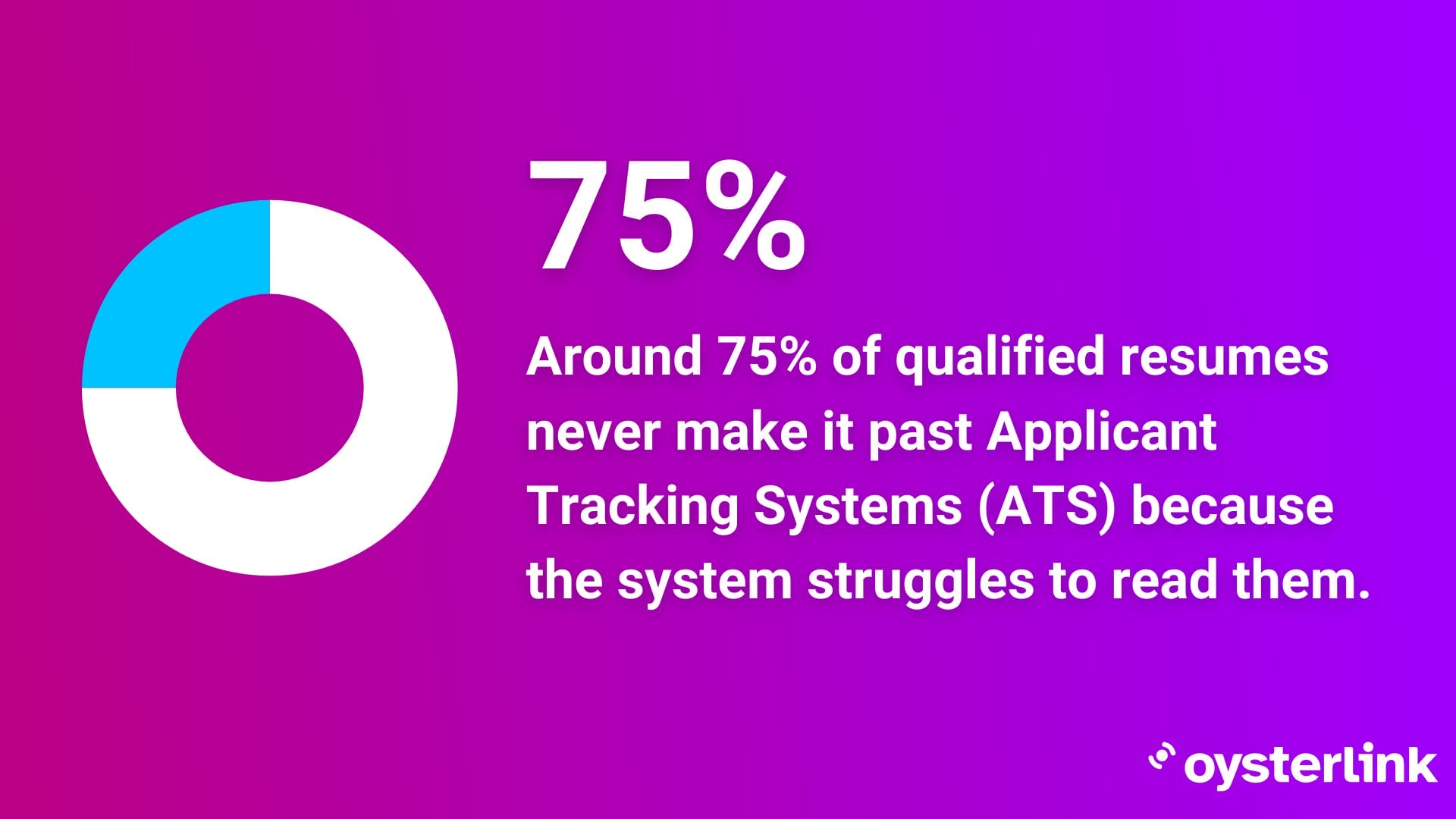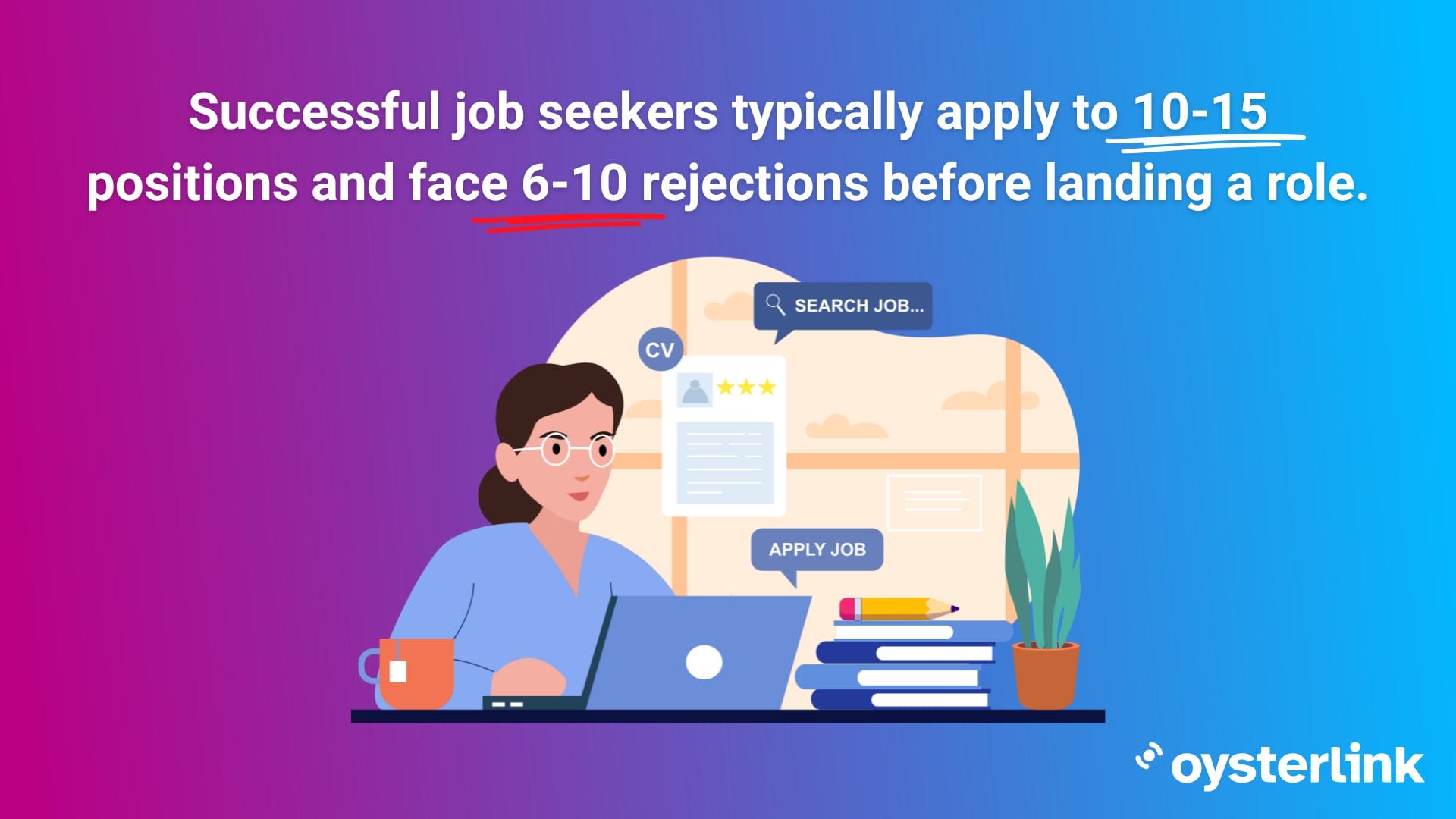Looking for a new job can feel overwhelming, especially when you’re not sure how many applications it might take to get hired. It’s easy to feel lost in the process, but having a clearer idea of what to expect can make the whole journey a lot less stressful.
In this guide, we’ll break down the job application process step by step. From how many applications you might need to send to tips on how to stand out, this article will give you practical advice to boost your chances of landing that dream job. Whether you’re fresh out of school or looking to make a career change, we’ve got you covered.
Getting a Handle on Today’s Job Market
The job market changes all the time. Economic trends, technology and industry needs all play a role. If you want to know how many applications it’ll take to get hired, you first need to understand how things work today.
The Digital Job Hunt
Long gone are the days of handing out printed resumes door to door. Most job searches now happen online, whether it’s through job boards, company websites or networking platforms like LinkedIn.
While this shift makes it easier to apply for a lot of jobs quickly, it also means more competition. One job posting can get hundreds, sometimes thousands, of applications from all over the world.
Beating the ATS
According to Forbes, around 75% of qualified resumes don’t make it past ATS (applicant tracking systems) because the system struggles to read them. The main issues are formatting problems and missing keywords.
To improve your chances, stick with simple file formats like .doc or .txt instead of .pdf, and include key terms from the job description in your resume. Most companies use ATS to filter applications, so tailoring your resume for these systems is essential to get noticed.

How Many Applications Should You Send?
When it comes to job hunting, it’s a mix of quantity and quality. Sending out dozens of generic applications isn’t the way to go. You’re better off focusing on fewer, high-quality applications.
Studies show that, on average, you need to send anywhere from 21 to 80 applications to get one job offer. The exact number depends on your industry and experience as well as the job market at the time.
Sure, those numbers might make you want to fire off as many applications as you can, but it’s not about the volume. A well-thought-out application tailored to the specific job will always do better than 50 generic ones.
Making the Most of Each Application
If you want to improve your chances, you need a plan. Here are some tips to get you started:
- Do your homework: Before you apply, take the time to learn about the company and the role. This helps you write a resume and cover letter that stand out and shows you’re genuinely interested.
- Tailor your resume and cover letter: You don’t need to rewrite your whole resume and cover letter for every job, but you should tweak these so the most relevant skills and experiences are front and center. Match your language to the job description where it makes sense.
- Network, network, network: A personal referral can make all the difference. When someone within the company vouches for you, your application is much more likely to get noticed. Reach out to friends, former coworkers or even connections on LinkedIn to see if they can help.
How Long Does a Job Search Take?
Job hunting can feel like it drags on forever, but knowing what’s normal can help you stay patient and focused.
Most people spend four to eight months looking for a new job. Of course, this varies depending on your field, where you live and the current economic conditions.
Here’s a rough idea of what the job search process looks like:
- Sending in your application
- Waiting for initial screening (often through ATS)
- Completing an initial phone or video interview
- Attending follow-up interviews
- Taking any required tests or assessments
- Providing references
- Negotiating a job offer
Each step can take days or weeks, so it’s important to stay persistent.

Preparing for a job interview?
Get Inspired And Learn
Different Strategies for Different Career Stages
The number of applications you need to send can also depend on where you are in your career.
- Just starting out: If you’re a recent grad, it might take more applications since you’re still building your experience. Focus on internships or entry-level roles and look for opportunities to learn and grow.
- Mid-career professionals: At this stage, your experience can help you narrow your search. Use your network to find roles that match your skills and expertise.
- Career changers: If you’re switching industries or job types, be prepared to send more applications. Highlight your transferable skills and consider roles that act as stepping stones into your new field.
How Your Industry and Role Affect Your Search
The industry you’re aiming for and the level of the role you want can significantly impact how many applications you’ll need to submit.
Some industries and roles are easier to break into, while others are more competitive and demand extra effort. Knowing where your field and desired position stand can help you create a smarter, more tailored strategy.
This difference becomes even clearer when you look at specific types of roles:
- Entry-level positions such as Dishwashers or Fast-Food Workers often attract hundreds of applicants because they require minimal experience, making them accessible to a wide range of people. As a result, you may need to apply to more roles to get noticed.
- Executive-level roles like Director of Restaurant Operations, however, usually rely heavily on networking or referrals. While there are fewer positions available, they often involve a more personalized and deliberate hiring process, which means you’ll focus on a smaller number of applications but invest more time and effort into each one.
Hospitality Hiring Trends in the U.S.
In the U.S. hospitality industry, demand for skilled professionals is on the rise.
The sector is expected to add 1.9 million jobs by 2031, driven by a strong recovery in tourism.
This means there are plenty of opportunities in areas like luxury hospitality and eco-tourism, making it an exciting time to be in the field. At the same time, competition is fierce.
Many hotels are still facing staffing shortages. To attract talent, 75% of these businesses have increased wages, showing just how competitive the job market has become.
To stand out in this fast-paced industry, focus on gaining relevant certifications and skills that align with current trends, like sustainability and tech-driven services. By staying adaptable and informed, you can position yourself as a top candidate and take advantage of the growing opportunities in hospitality.
Dealing With Job Search Burnout
Searching for a job can feel like a full-time job in itself, and it’s easy to feel worn out — especially if you’re not getting responses as quickly as you’d like. Maintaining motivation and a balanced approach is crucial not only to keep going but also to manage your well-being. After all, if burnout sets in during your job search, it can make it even harder to thrive in roles where stress is already prevalent.
For example, in 2019, the hotel, food services and hospitality sector recorded the highest global burnout rate, with nearly 80% of employees feeling overwhelmed by their workload. Similarly, the manufacturing and healthcare industries reported significant stress levels, affecting over 76% of workers.
However, managing burnout early can better prepare you for demanding work environments like these.
Set Manageable Goals
Rather than overwhelming yourself by trying to apply for every job you come across, focus on sending 10 to 15 high-quality, well-researched applications each week. It’s better to spend time customizing your resume and cover letter for each role than to send out dozens of generic applications.
Make room in your schedule for networking and skill-building activities, too. These can often yield better results than simply applying online.
Keep a Healthy Balance
Treat your job search like a structured workday. Set specific hours for researching roles, writing applications, and following up, but don’t forget to take breaks. Step away from your computer, go for a walk or spend time on a hobby.
A balanced routine ensures you stay productive and approach each application with a fresh perspective.
Celebrate Small Wins
Every small step forward is a win, and it’s important to acknowledge them. Whether it’s receiving an interview invite, making a new connection on LinkedIn or improving your resume, celebrate these milestones.
Recognizing your progress will keep you motivated and remind you that every step is bringing you closer to your goal.
Using Technology to Your Advantage
There are plenty of tools to make your job search easier and more organized.
Job Search Platforms
Websites like OysterLink are fantastic resources for job seekers, especially those in the hospitality industry. Platforms like OysterLink specialize in providing high-quality job postings from reputable companies, ensuring you’re looking at opportunities that are worth your time.
With their niche focus on hospitality, you can use filters to tailor your search by location, industry or experience level, helping you quickly find roles that align with your skills and career goals.
Stay Organized
Keeping track of your applications can make a big difference. Create a simple spreadsheet or use an app to log the details of each application, including the company, position, date applied and current status.
This will help you stay on top of deadlines, avoid duplicate applications and follow up with employers in a timely manner.
Leverage Social Media
Use social media to connect with professionals in your field, share your expertise and engage with industry-related content. A strong online presence can attract recruiters and even lead to opportunities that aren’t publicly advertised.
73% of job seekers aged 18 to 34 secured their most recent job through social media platforms.
Learning From Feedback
Feedback is one of the most valuable tools for improving your job search because it provides clarity on what’s working, what’s not and where you can make changes to get better results. While rejections can be disappointing, they’re also opportunities to learn and grow.
If you don’t land a job after an interview, don’t hesitate to politely ask the recruiter or hiring manager for feedback. Even a brief explanation can offer helpful insights into areas like your application materials, interview performance or skills that need enhancement. Over time, this feedback can guide you in refining your strategy.
Pay attention to patterns in the responses you receive. For example, if you notice that certain skills keep coming up as areas for improvement, it’s a clear sign to focus on developing those capabilities. Instead of seeing rejections as setbacks, treat them as steps toward stronger applications for your next opportunity.
On average, successful job seekers apply for 10 to 15 positions and face 6 to 10 rejections before securing a role.

Staying Persistent and Flexible
A successful job search requires persistence and a willingness to adapt. While it’s normal to face ups and downs, staying consistent in your efforts and flexible in your approach can help you stay on track.
- Keep pushing forward: Even if you’re not getting responses right away, don’t lose hope. Every application you send out brings you closer to the right opportunity. Job searching is often a numbers game, and persistence pays off in the long run.
- Be open to adjusting your strategy: The job market is constantly changing, so it’s important to stay informed about trends in your industry. If you’re not seeing results, try something different. For example, you could look at jobs in adjacent fields, consider remote roles or focus more on networking rather than relying on online applications.
- Focus on skill development: Use any downtime to enhance your qualifications. Taking online courses, earning certifications or even volunteering in your field can make you a more competitive candidate. Not only do these activities boost your resume, but they also show employers that you’re proactive about growing your skills.
Before landing an interview, it’s important to focus on a few key things. A smart, strategic approach always pays off. Here’s some expert advice from Sarah Diehl to help guide you:

“Be selective and take time. Meet with a lot of different employers. Pay attention to how they treat you.
You are interviewing them as much as they’re interviewing you, so make sure that you’re investing your time in a place that really values you and that can help you grow.”
Final Thoughts
When it comes to figuring out how many applications it takes to get a job, there’s no magic number. What matters most is the effort you put into tailoring each application, networking and staying persistent.
Focus on what you can control, celebrate your progress, and keep learning along the way. Every application gets you one step closer to your next opportunity.

Written by Lidija Misic
Lidija holds a BA in English Language and has lived in five different countries, where she has worked in various roles, including as a flight attendant, teacher, writer and recruiter. Her biggest passion is crafting great content and reading. She is particularly passionate about creating punchy copy that inspires people to make positive changes in their lives.

Edited by Marcy Miniano
Marcy is an editor and writer with a background in public relations and brand marketing. Throughout her nearly decade-long career, she has honed her skills in crafting content and helping build brands across various industries — including restaurant and hospitality, travel, tech, fashion and entertainment.




